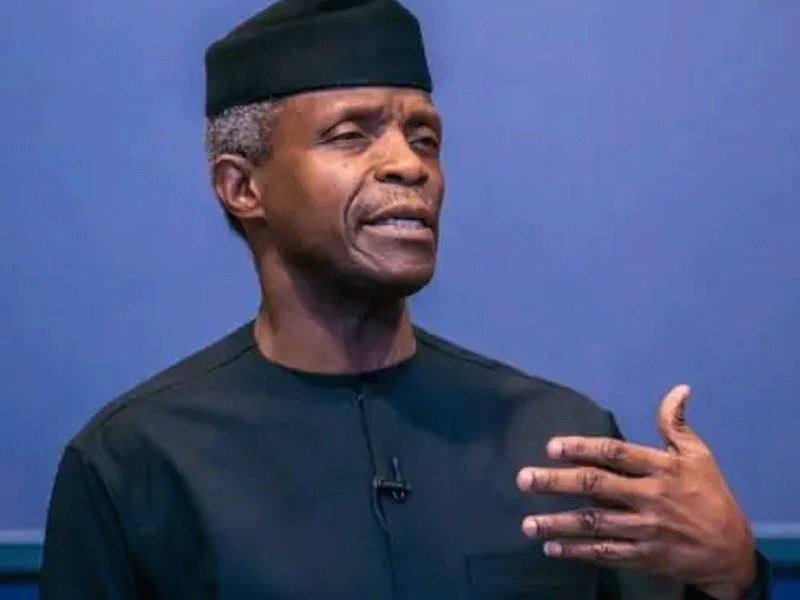MEDIATRACNET
Nigerian workers would not accept the planned hike in the price of petrol from February 2022, as their umbrella body, the Nigeria Labour Congress has described it a recipe for crisis and revolt.
The President of the Nigeria Labour Congress, Ayuba Wabba, said the plan would not only aggravate the current hyper-inflation in the country, but would compound the astronomical increase in the price of goods and services in the economy.
The organized labour was reacting to a statement credited to both the Group Managing Director and Chief Executive Officer of the Nigeria National Petroleum Company (NNPC) Limited, Mele Kyari, that the price of petrol would jump to as high as between N320 and N340 from February 2022.
The NLC said Kyari’s statement was re-echoing the Minister of Finance, Budget and National Planning, Zainab Ahmed, who announced last Tuesday at the launch of the World Bank Nigeria Development Update (NDU) of the government’s plans to disburse N5000 to 40 million poorest Nigerians each as transport grant to cushion the effect of the planned removal of the fuel subsidy.
“The contemplation by government to increase the price of petrol by more than 200% is a perfect recipe for an aggravated pile of hyper-inflation and astronomical increase in the price of goods and services.
“This will open a wide door to unintended social consequences such as degeneration of the current insecurity crises and possibly citizens’ revolt. This is not an outcome that any sane Nigeria wishes for,” Wabba said.
Also, the NLC said if the plan was allowed to go ahead, it would definitely be compounded by the astronomical devaluation of the Naira, which currently goes for N560 to the dollar in the parallel market.
“Thus, any attempt to compare the price of petrol in Nigeria to other countries would be set on a faulty premise, as it would be akin to comparing apples to mangoes,” he added.
The NLC President said the price increase would be sequel to the plan by the Federal Government to remove subsidy in the pricing template of the Premium Motor Spirit (PMS), popularly called petrol.
The disclosures by Kyari and Ahmed were similar to the positions by the World Bank Country Director for Nigeria, Shubham Chaudhuri and the International Monetary Fund urging the Federal Government to do away with fuel subsidy.
NNPC GMD said the plan to remove subsidy on petrol was based on the claim that the decision was backed by an Act of parliament, following the recent passage into law of the Petroleum Industry Act.
He said the thinking about the removal of fuel subsidy remains a gamble as the palliative offered by government would not solve serious problem the masses suffer through the double jeopardy of hype-inflation against the fixed salaries of the workers.
What the NLC has been hearing, he noted, was the conversation of the Federal government with neo-liberal international monetary institutions and not the conversation between the government and the people of Nigeria, especially workers under the auspices of the trade union movement on the matter of fuel subsidy was adjourned sine die so many months ago.
“Given the nationwide panic that has trailed the disclosure of the monologue within the corridors of government and foreign interests, the Nigeria Labour Congress wishes to posit that it continues to maintain its rejection of deregulation based on import driven model.
“It is difficult to convince Nigerian workers why our dear country is the only country among the OPEC member countries that cannot produce its own refined petroleum products and thus adopts the neo-liberal import production model of refined petroleum products.
“We wish to reiterate our persuasion that the only benefit of deregulation based on import driven model is that Nigerian consumers will infinitely continue to pay high prices for refined petroleum products,” he said.
The NLC said the argument that the complete surrender of the price of petrol to market forces would normalize the curve of demand and supply was being wrongly attributed to the current market realities with cooking gas, diesel and kerosene based on a false premise.
Wabba said the truth was that these commodities, which he said Nigeria can easily produce, have been priced out of the reach of most Nigerian families, with majority of the people resorting to tree felling and charcoal for their energy needs.
He described as “comical” government bait to pay 40 million Nigerians N5000 as palliative to cushion the effect of astronomical increase in the price of petrol, saying the total amount involved in initiative was far more than the money government claims to spend currently on fuel subsidy.
The NLC President said apart from labour’s concerns on the transparency of the disbursement of the palliative, given previous experiences with such schemes, they are wondering if government was not trying to “rob Nigerians to pay Nigerians?”
The federal government, he said should consider various options that could help Nigeria move away from crisis as a result of the failure by successive governments to embrace developmental governance and accountable leadership.
He said some of the viable options that could help resolve the crisis included insulating the domestic consumers from the market pressure brought about by the free fall of the Naira, by making an arrangement with contiguous refineries not far from Nigeria to swap crude oil with refined petroleum products.
Other solutions include accelerating work on the rehabilitation of Nigeria’s four major refineries all currently operating at near zero installed capacity, and establishing empirical data on the quantity of refined petroleum products consumed daily by Nigerians.
.




